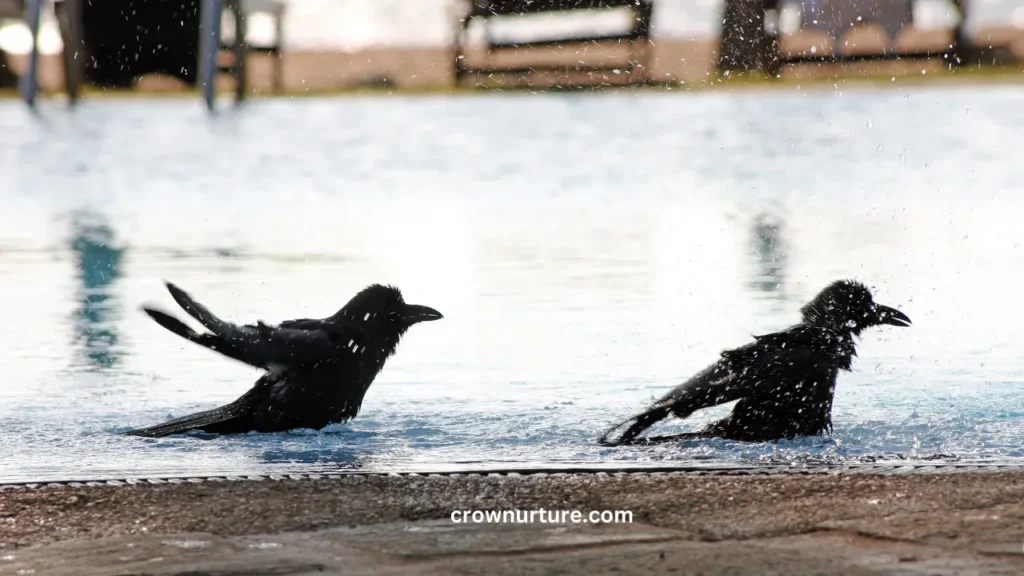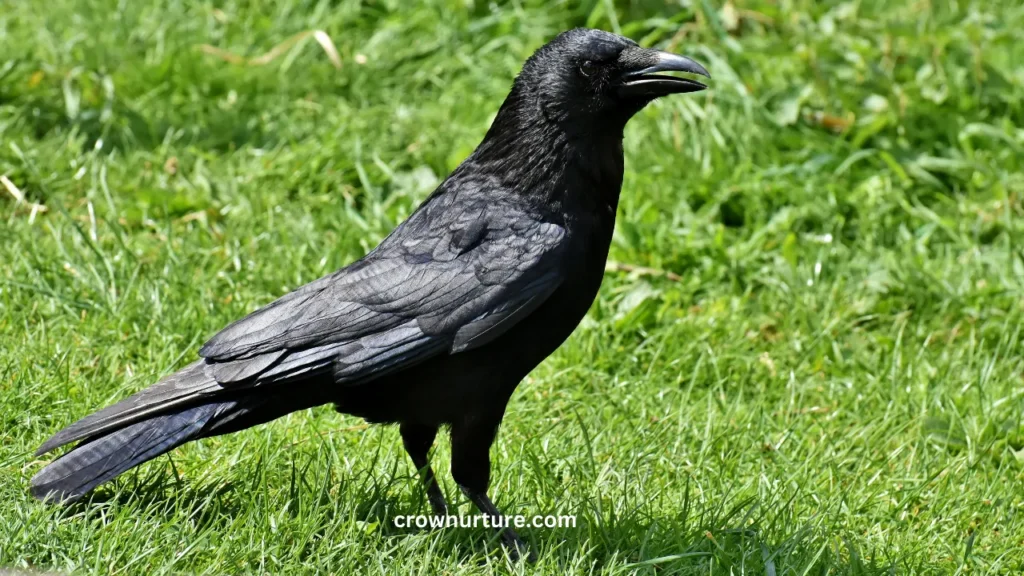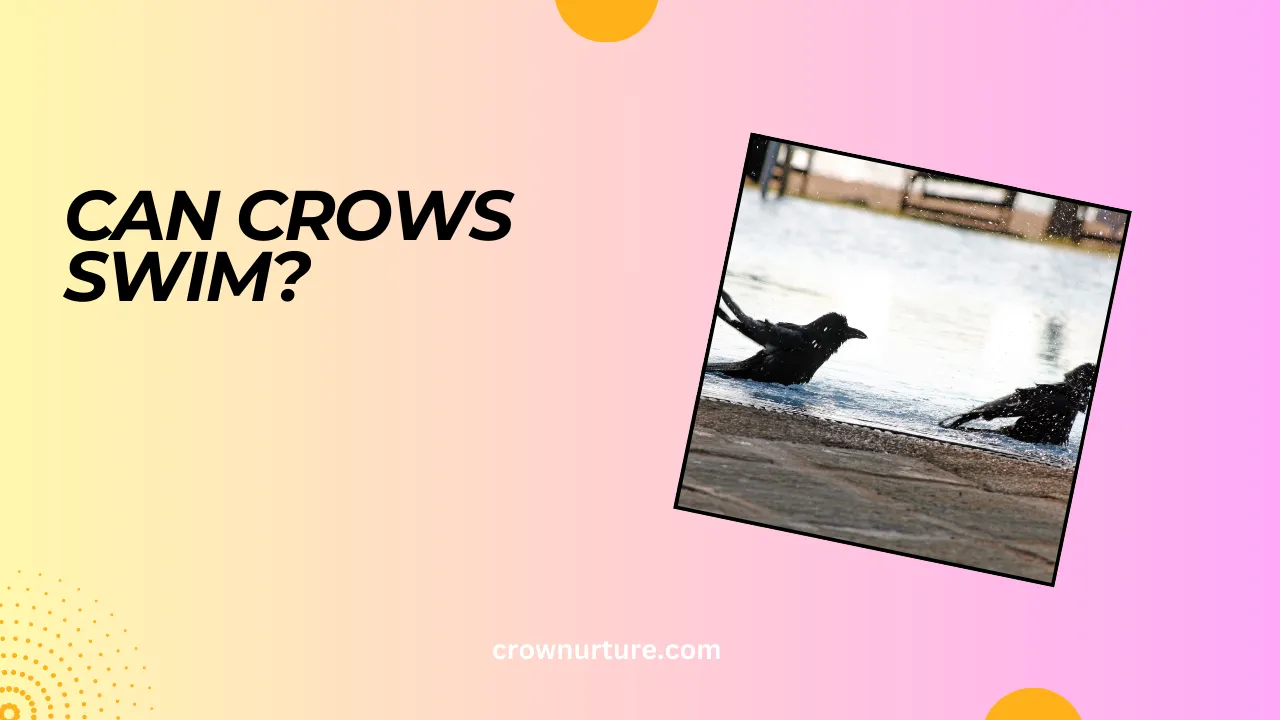Crows are known for their intelligence, adaptability, and resourcefulness, but they’re not creatures we typically associate with water. This raises an interesting question: Can crows swim?
The answer might surprise you. While they are not natural swimmers like ducks or geese, crows do possess the ability to stay afloat and paddle to safety under certain circumstances.
Understanding whether crows can swim isn’t just a quirky curiosity; it sheds light on their remarkable survival skills and how they navigate challenges in their environment.
From accidental falls to daring food searches, crows’ interactions with water reveal their resilience and quick-thinking nature.
In this post, we’ll explore the physical limitations of crows in water, scenarios where they might find themselves immersed, and the potential dangers they face. You’ll gain a deeper appreciation for these remarkable birds and their ability to adapt to life’s unexpected challenges.

Contents
1. Physical Limitations of Crows for Swimming
- Lack of Webbed Feet:
Unlike ducks or geese, crows lack webbed feet, which are essential for efficient swimming. Their feet are designed for perching and gripping rather than propelling through water. - Feather Structure:
Crow feathers are not waterproof, which means they become waterlogged and heavy when wet. This hinders flight and makes prolonged swimming difficult. - Body Shape:
The streamlined shape of a crow’s body is suited for flying rather than swimming, making them less efficient in the water compared to aquatic birds.
2. Scenarios Where Crows Might Encounter Water
- Accidental Falls:
Crows can fall into ponds, lakes, or rivers, especially in urban areas where water bodies are common. These incidents often happen while they are foraging or playing. - Pursuit by Predators:
When fleeing from predators like cats, dogs, or hawks, crows may accidentally end up in water as a last resort to escape danger. - Searching for Food:
Sometimes, crows venture near water bodies to search for food, such as fish or insects, increasing the risk of accidental immersion.

3. Crow Behavior in Water
- Staying Afloat:
Crows are not strong swimmers, but their lightweight bones and air sacs help them stay afloat for short periods. - Paddling Efforts:
When in water, crows may attempt to paddle using their wings or feet to propel themselves toward safety. This behavior is often instinctive and desperate. - Seeking Refuge:
Crows look for floating debris, rocks, or nearby shores to escape the water. Their problem-solving nature helps them find refuge quickly.
4. Consequences of Water Immersion
- Hypothermia:
Prolonged exposure to cold water can cause hypothermia, making it difficult for crows to fly or move effectively. - Drowning:
Crows risk drowning if they cannot reach safety or become too exhausted while trying to stay afloat. - Predation:
When trapped in water, crows become vulnerable to predators like large fish, other birds, or mammals that can exploit their weakened state.
5. How Crows Demonstrate Resilience in Water
- Adaptability:
Crows display remarkable adaptability when faced with water-related challenges, often finding creative solutions to escape danger. - Learning from Experience:
These intelligent birds learn from water encounters, which may help them avoid similar situations in the future. - Survival Instincts:
Despite their physical limitations, crows rely on their instincts and problem-solving abilities to navigate and survive water-related incidents.
Conclusion
Crows are not natural swimmers, but their resilience and adaptability enable them to survive unexpected encounters with water. Their lack of webbed feet, non-waterproof feathers, and flight-adapted body shape limit their swimming abilities, but their clever instincts often guide them to safety.
These encounters highlight the importance of specialized adaptations in aquatic birds, which crows lack. However, their resourcefulness proves that even non-aquatic birds can face challenges with creativity and determination.
Crows’ interactions with water remind us of nature’s unpredictability and the incredible ability of wildlife to overcome obstacles. By understanding and appreciating these behaviors, we gain deeper insight into the adaptability of one of the most intelligent bird species in the world.
FAQs
1. Can crows naturally swim?
No, crows are not natural swimmers, but they can stay afloat and paddle to safety in emergencies.
2. What happens if a crow falls into water?
If a crow falls into water, it will try to stay afloat and reach the nearest shore or floating object.
3. Do crows avoid water?
While crows are not aquatic birds, they do not avoid water entirely and may visit water bodies for drinking or food.
4.. Can a crow drown?
Yes, crows can drown if they remain in water for too long or cannot find a way to escape.
5. Why don’t crows have waterproof feathers?
Crows are not adapted for aquatic life, so their feathers are not waterproof like those of ducks or swans.
6. Do crows ever bathe in water?
Yes, crows enjoy bathing in shallow water to clean their feathers, but this is different from swimming.








